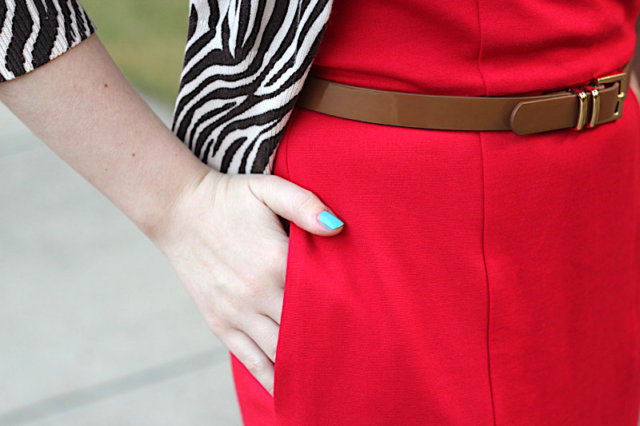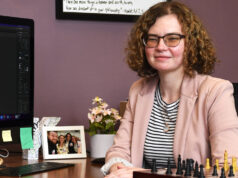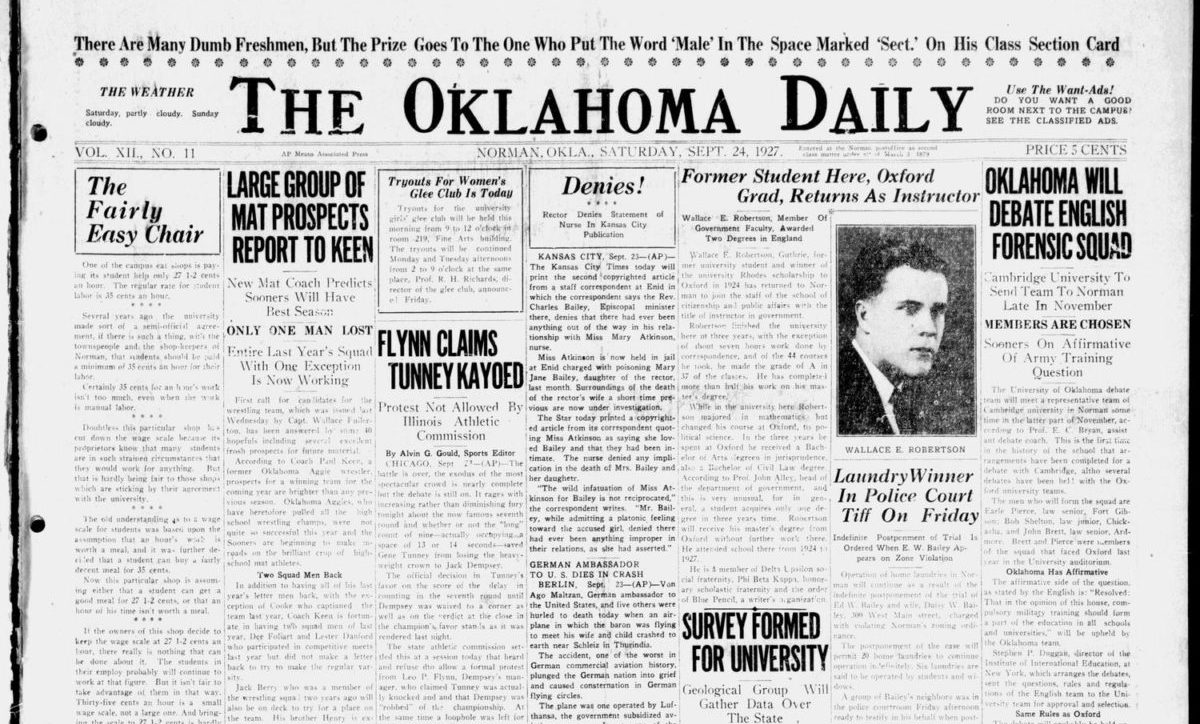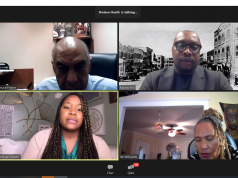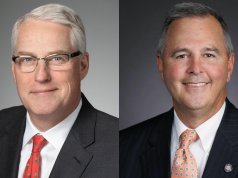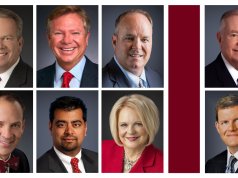
On Sept. 30, the OU Daily reported that University of Oklahoma law professor and associate dean Brian McCall argued in a 2014 book that, among other things, women should not wear pants.
If he is really interested in persuading women to wear skirts, he should lobby the fashion industry to add pockets. It’s what women really want.
But also, women want fewer creeps.
More specifically, we want fewer religious fundamentalists in positions of authority.
McCall: Women in pants ‘a sin against charity’
The revelation of McCall’s fundamentalist views horrified the public. From the OU Daily’s article on McCall’s 2014 book:
In a chapter of the book called “Modest Contact With the World: Women In Pants and Similar Frauds,” McCall stated that women are obligated to hide their natural curvature by wearing skirts.
“Women must veil their form to obscure its contours out of charity towards men,” McCall wrote in the chapter. “To know that women in pants have this effect on men and to wear them is thus a sin against charity as well as modesty.”
McCall wrote that no woman or girl in his family is allowed, nor desires, to wear pants. Research provides evidence that pants on women draw a man’s eye to her “creative sanctuary,” he stated, and skirts better encapsulate the “modest restraint” that all women should have.
“… if there is something really impossible to do in a skirt, does this not indicate this is an activity inappropriate for a woman to perform?” McCall wrote. “A simple test of modest and feminine behavior can be summarized: if you can’t do it modestly and gracefully in a skirt, you shouldn’t do it at all.”
The university responded quickly after The Daily’s report, and McCall resigned his positions as associate dean for academic affairs and associate director of the law school.
The university’s Equal Opportunity Office uncovered no evidence of workplace harassment or discrimination. This is reassuring, to a degree. For now, McCall has retained his professorship, so his misogyny and homophobia (he claimed marriage equality to be “insanity”) will still be allowed to play out in the classroom.
While the consequences of being taught by a man with such fanatical views are very real for female and LGBTQ students, evidence of his discriminatory behavior and attitudes in the classroom will depend on whether vulnerable students feel empowered to come forward. America’s current partisan climate, in which the president of the United States mocked a sexual assault survivor he had previously declared credible, certainly doesn’t encourage them to do so. How will the university ensure women and LGBTQ students are being given an educational experience similar to that of their male and straight peers in McCall’s classroom?
We’ve seen our fair share of fundamentalists lurking in our in our midst. Just last year, former Oklahoma City Mayor Kirk Humphreys’ homophobia unexpectedly slipped out during a local television broadcast. It was an important moment for fair-minded Oklahomans. It not only provided an opportunity for people to be reminded of Humphreys‘ history of discrimination against the LGBTQ community, but also of his racially charged comments about the gene pool of the Putnam City School District. Not surprisingly, the episode also led to the revelation of a cache of recordings of Humphreys’ misogynistic views. He, too, is obsessed with how women look and dress. While he still holds several positions of influence, public outcry over his 2017 homophobic comments forced Humphreys to resign from the University of Oklahoma Board of Regents.
‘Sunlight is said to be the best of disinfectants’
As disturbing as McCall’s beliefs are, Oklahomans should be relieved at the outing of these religious fundamentalists. Their ideals are harmful and embarrassing. As Supreme Court Justice Louis Brandeis said, “Publicity is justly commended as a remedy for social and industrial diseases. Sunlight is said to be the best of disinfectants.”
Out in the open, fundamentalists’ commitment to misogyny and homophobia can be treated. Hope is a professional obligation for ministers, and I really believe it is possible to recover from such maladies.
Oklahomans want visionaries who understand the strength of diversity. We want educators who encourage our best and brightest to excel. We want thought leaders who can move our state forward and inspire our young people to make Oklahoma their home.
And more pockets. We definitely want more pockets.









